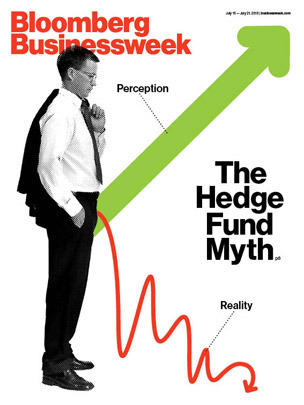Nick Mamatas's Blog, page 51
July 16, 2013
Tuesday quick notes
Over at the day job, we released Catherynne M. Valente's (lj's own
 catvalente
) collection The Melancholy of Mechagirl. Buy it!
catvalente
) collection The Melancholy of Mechagirl. Buy it!
Over at The Big Click, we have You Are Watching by Ann Sterzinger. Read it! (You can also buy ebooks to keep us going, or even subscribe.
My new favorite twitter account is forexposure_txt, about people whining for free artwork for comics. It's more than just a cut and paste job—they do dramatic readings! See?
There. You have your afternoon set now. Enjoy.
 catvalente
) collection The Melancholy of Mechagirl. Buy it!
catvalente
) collection The Melancholy of Mechagirl. Buy it!Over at The Big Click, we have You Are Watching by Ann Sterzinger. Read it! (You can also buy ebooks to keep us going, or even subscribe.
My new favorite twitter account is forexposure_txt, about people whining for free artwork for comics. It's more than just a cut and paste job—they do dramatic readings! See?
There. You have your afternoon set now. Enjoy.
Published on July 16, 2013 11:48
July 15, 2013
A brief note on Martin and Zimmerman
Much has been made of the ability of the Martin/Zimmerman case to separate out the politics of observers, much like chick-sexing. The story is that liberals see the case as the result of racism (and secondarily the terror of guns) and that conservatives believe justice was done. The most egregious example of the latter was an Internet comment (yes yes, "Don't read the comments!") that suggested that Martin needed killing and that Zimmerman likely saved many lives by killing Martin before Martin's criminality could fully manifest itself.
One thing worth noting is that, of course, many white liberals (and liberals of other races) are also terrified of young black men.* Honestly, the second I heard that the jury would be comprised of five white women and a Latina woman, I thought to myself, Zimmerman will walk! Few demographics are more terrified of young black men than white women, and this is true of liberals as well as conservatives.
*They just dislike confrontation.
One thing worth noting is that, of course, many white liberals (and liberals of other races) are also terrified of young black men.* Honestly, the second I heard that the jury would be comprised of five white women and a Latina woman, I thought to myself, Zimmerman will walk! Few demographics are more terrified of young black men than white women, and this is true of liberals as well as conservatives.
*They just dislike confrontation.
Published on July 15, 2013 08:46
July 14, 2013
Pacific Rim
Pacific Rim was excellent, definitely greater than the sum of its parts. CGI monster fights don't make for good film—I inevitably feel as though I'm watching someone else play a video game. But here, the CGI works. And there's much more to the film too. Things you've not heard.
In the very near future, perhaps next week, giant monsters called kaiju emerge from a gash under the ocean and attack cities. These monsters have codenames like Knifehead, Tresspasser, Fat Amy, and Leatherback. Ordinary military weapons are all but useless, so the world comes together to create giant piloted robots called jaegers. The machines are so complex that a single pilot cannot handle them, so pairs of people do it—most of them are related, as this allows for smoother neural connections. Then the monsters get more powerful, as though they are evolving, and the jaegers begin to lose. The governments of the world attempt to build a giant wall around the cities of the Pacific Rim...and this is all in the first five minutes!
Pacific Rim has a hero, and the hero has a problem: his older brother and robot "Gipsy Danger" co-pilot was killed in an altercation with a kaiju, and so he gets a job helping build the giant wall around Alaska. You might think they'd use giant robots to build a giant wall, but no, it's just a bunch of chumps with rivet guns. Anyway, it hardly matters, because a monster smashes through the Australian wall and everyone except Big Government realizes that the wall idea is stupid. A new team of jaeger pilots must be recruited, but after the failures of the previous regime, who would dare sign up?

That's right, an international, multicultural team of badasses.
Our hero has no co-pilot, though! There are many candidates, but can he really work together with the typical recruit? No! He's an individual, who cannot help but stand out due to his quirky attitude and past trauma. In one of the more gripping scenes, he runs through several wannabes in pitched battle!
And yet, a damaged woman with whom there might just be some romantic tension approaches him in their dingy industrial digs—can they work together to save the world from giant monsters? Maaaaybeee...
The power of titanium! Armor that is...
Soon they will be put to the ultimate test. There are several jeager teams that have come out of retirement as part of an audacious plan to nuke the breach from which the kaiju are coming. But the kaiju are still evolving. One can spew deadly acid!

And one, in an amazing cinematic moment, reveals that the worst possible moment that it can fly!

But the batte is not just between the jaeger and the kaiju—there are inter-jeager conflicts as well, thanks to a lot of chest-beating from the cocky Australian jaeger team:

There is heroism, and mass destruction, and heroism, even from the brash young Australian who sacrifices himself for the sake of all humanity:

And in the end...you know what? Thanks to teamwork, collaboration, and skill—and a stunning critique of both the state and unregulated capital—the kaiju are defeated and the world is saved. Everything's going to be all right:
It's not about the money
Pacific Rim has it all. When watching the final credits, I thought to myself. o O (How can the studios see this and not let del Toro do whatever he wants from now on...even a musical!) The world of the film feels lived in despite the fantastical premise, the visuals are astounding, and the score is intense. Who can listen to the ending credits song without feeling the rage of the kaiju, and the righteous fury of the jaeger-pilots? What did you come to the movie for anyway?
At the very end, we learn that the film is dedicated to Ray Harryhausen and Ishirō Honda. An exquisite and thoughtful final touch to a movie that is virtually...pitch perfect.
Go see it!
In the very near future, perhaps next week, giant monsters called kaiju emerge from a gash under the ocean and attack cities. These monsters have codenames like Knifehead, Tresspasser, Fat Amy, and Leatherback. Ordinary military weapons are all but useless, so the world comes together to create giant piloted robots called jaegers. The machines are so complex that a single pilot cannot handle them, so pairs of people do it—most of them are related, as this allows for smoother neural connections. Then the monsters get more powerful, as though they are evolving, and the jaegers begin to lose. The governments of the world attempt to build a giant wall around the cities of the Pacific Rim...and this is all in the first five minutes!
Pacific Rim has a hero, and the hero has a problem: his older brother and robot "Gipsy Danger" co-pilot was killed in an altercation with a kaiju, and so he gets a job helping build the giant wall around Alaska. You might think they'd use giant robots to build a giant wall, but no, it's just a bunch of chumps with rivet guns. Anyway, it hardly matters, because a monster smashes through the Australian wall and everyone except Big Government realizes that the wall idea is stupid. A new team of jaeger pilots must be recruited, but after the failures of the previous regime, who would dare sign up?

That's right, an international, multicultural team of badasses.
Our hero has no co-pilot, though! There are many candidates, but can he really work together with the typical recruit? No! He's an individual, who cannot help but stand out due to his quirky attitude and past trauma. In one of the more gripping scenes, he runs through several wannabes in pitched battle!
And yet, a damaged woman with whom there might just be some romantic tension approaches him in their dingy industrial digs—can they work together to save the world from giant monsters? Maaaaybeee...
The power of titanium! Armor that is...
Soon they will be put to the ultimate test. There are several jeager teams that have come out of retirement as part of an audacious plan to nuke the breach from which the kaiju are coming. But the kaiju are still evolving. One can spew deadly acid!

And one, in an amazing cinematic moment, reveals that the worst possible moment that it can fly!

But the batte is not just between the jaeger and the kaiju—there are inter-jeager conflicts as well, thanks to a lot of chest-beating from the cocky Australian jaeger team:

There is heroism, and mass destruction, and heroism, even from the brash young Australian who sacrifices himself for the sake of all humanity:

And in the end...you know what? Thanks to teamwork, collaboration, and skill—and a stunning critique of both the state and unregulated capital—the kaiju are defeated and the world is saved. Everything's going to be all right:
It's not about the money
Pacific Rim has it all. When watching the final credits, I thought to myself. o O (How can the studios see this and not let del Toro do whatever he wants from now on...even a musical!) The world of the film feels lived in despite the fantastical premise, the visuals are astounding, and the score is intense. Who can listen to the ending credits song without feeling the rage of the kaiju, and the righteous fury of the jaeger-pilots? What did you come to the movie for anyway?
At the very end, we learn that the film is dedicated to Ray Harryhausen and Ishirō Honda. An exquisite and thoughtful final touch to a movie that is virtually...pitch perfect.
Go see it!
Published on July 14, 2013 23:11
July 13, 2013
This is...
the frozen moment when everyone sees what is on the end of every fork.
Published on July 13, 2013 20:29
July 12, 2013
Remember...
...when LJ would go down and when it came back we'd all rush over and start posting about how upset we were?
Published on July 12, 2013 17:57
Friday Quick Notes
Here's an Indiegogo worth supporting, at least by me, as "Kathy Goes to Haiti" is one of my favorite stories:KATHY GOES TO HAITI is a feature film, which started as a narrative short set in Haiti, then transformed into a documentary after the death of the Co-Director.
I was asked for an Oprahesque "A-ha!" moment when it came to writing. Having no idea what an a-ha moment is even after it was explained to me four times, I just made fun of people:
Hellooooo Bloomberg Business Week:

And now, the quote of the day: "Calm! Calm! Calm! We are neither coppers no robbers, Monty: we only want to know for the sake of knowing...to follow knowledge like a sinking star beyond the utmost bounds of human thought...we want to know, Monty. It is as simple as that. What the hell sis Leeuwenhoek want when we poked his home-made microscope at a drop of dirty water? Simple to know. We are made that way, you see."—from The Secret Masters by Gerald Kersh.
Finally, and speaking of wanting to know, here is the worst thing I've seen on the Internet in a while. It's not a joke, it's not funny, it's just a testament to human stupidity and self-obsession. It's the sort of thing I share because I foolishly found and read it.
I was asked for an Oprahesque "A-ha!" moment when it came to writing. Having no idea what an a-ha moment is even after it was explained to me four times, I just made fun of people:
Hellooooo Bloomberg Business Week:

And now, the quote of the day: "Calm! Calm! Calm! We are neither coppers no robbers, Monty: we only want to know for the sake of knowing...to follow knowledge like a sinking star beyond the utmost bounds of human thought...we want to know, Monty. It is as simple as that. What the hell sis Leeuwenhoek want when we poked his home-made microscope at a drop of dirty water? Simple to know. We are made that way, you see."—from The Secret Masters by Gerald Kersh.
Finally, and speaking of wanting to know, here is the worst thing I've seen on the Internet in a while. It's not a joke, it's not funny, it's just a testament to human stupidity and self-obsession. It's the sort of thing I share because I foolishly found and read it.
Published on July 12, 2013 08:48
July 10, 2013
Boycotting artists and political consciousness
It is not unusual to find artists on the left (at least the self-identified left) who are very wary of the idea of ideological boycotts of artists. That is, boycotts—or really, often just failures to consume what would otherwise be consumed—of this or that book or film based on the creator's politics. Or even just blathering. In addition to the two links above, Brust and Doctorow about Ender's Game, I remember Terry Bisson on Facebook objecting to the idea of boycotting Michelle Shocked after her weird meltdown this past spring. He felt it was too similar to what the Dixie Chicks faced for coming out against the Iraq War. As if people were busy going to Michelle Shocked shows or buying her records anyway. That's why she was playing a jazz club on a fucking Sunday. The Dixie Chicks had a career. Still do!
Now the boycott is a traditional left tool. It's essentially a strike of consumption. Don't eat grapes until... don't patronize the Hyatt unless... Boycotts serve the dual purpose: it's an economic weapon, and also an intervention into changing the public consciousness. This is why boycotts are necessarily collective endeavors. There is no such thing as an individual boycotting anything; you're either part of a boycott or just failing to consume. So Skip Ender's Game is an actual boycott, see? It's a movement. It's seeking both economic influence and consciousness raising. (If there's an easy way to see who has signed the Skip pledge, I can't find it at that link without also signing it myself at the very least. Well, nobody's perfect.)
The wariness from sections of the left is easy enough to figure out: they're worried they'll be next. The worm always turns; who knows what might upset activists on the other end of the spectrum. Other leftists don't worry about the specter of boycotts: anti-capitalist artists are often already divorced from the mass market. Who the hell would boycott me, for example? Everybody already doesn't buy my books. Of course, one could boycott editors who solicit me for short fiction, but given the very occasional royalties I get from anthologies—five bucks, sometimes twenty bucks—it's not like anyone is buying those books either. (Note the icon on this post. I don't care.)
Further, the boycott-as-blacklist simply doesn't work as a political operation from below. Blacklists are effective when a cartel is either making secret decisions, or when a state compels capitals to take some action. There are too many holes in a blacklist otherwise, because the political consciousness of a boycott—an organic, grassroots consciousness—is lacking. Blacklists don't come from below. Steve Brust is correct that the left doesn't backlist, but he is confused as to why: it lacks the power to do so. It's not a moral issue, though moralism is being used in this case as a defense.
More seriously, there are plenty of artists who write for politicized audiences on both the right and left—stop into a religious bookstore sometime. Far leftists often have small politicized audiences that are augmented by audiences of aesthetic explorers, as does the far right. (Did you burn your Death in June CDs when you found out...?) But these artists are essentially immune from boycott because they exist at the far ends of the political spectrum, and their politics show in their work.
So what's left are the artists (or "artists") in the mass market. Boycotts can be meaningful in the mass market, as the less politicized section of the audience can be compelled to skip a movie or book they might otherwise consume, and controversy-averse capitals may just cut out while the cutting out is still good. Of course, sometimes boycotts are the best advertising!
An old Marxian saw comes to mind: being determines consciousness . (See, it's important so I used every button available to me.)
It is no surprise that left artists with mainstream levels of success are hesitant to call for boycotts against artists, and willing to speak out against them—to speak out against them as a matter of principle even. We saw the same from the right last year, which to their shame, many supposed liberals celebrated:
(I saw this video on Facebook a couple dozen times in a week.)
What sort of consciousness does a left being who is wary of boycotts has? Well, as O'Reilly points out, the issue is "business." Separating the art from the artist is not at issue: one can easily separate the art from the artist by prowling used bookstores, or watching films when they come on television, or good ol' fashioned shoplifting. (Artists with non-business consciousness may may encourage this. I laughed to see that Tower died ignominiously, Blockbuster is doing the same, but Chumbawumba went out with style. Business consciousness, not an estimation that art can exist distinct from the artist, is what is driving the nervousness over boycotts. Here's another example of that, from a fish sufficiently small that there's nothing to lose in explicitly discussing her business consciousness.
Now, will I be boycotting Ender's Game? No. Will I be going to see it? It's exceedingly unlikely—I have no interest in the film, it looks ridiculous, and I'm often too busy to see movies these days. If it's so terrible that people offer to pay me to watch it, as has happened in the past, I might, as the $50 in my pocket will do more good than the extra $00.01 in Card's will do evil. As far as my opinion of Orson Scott Card, I tend to see him as a pitiable figure, not a hateful one. I was never a huge fan—I liked the first three Ender books fine enough but never had the impulse to do more than that. The Worthing Saga is still worth reading. I was asked, once, why I worked "with" Card on the book Getting Lost and I can only say that I did no such thing. My essay was solicited by the folks at Smart Pop books, and then after the book was compiled, Card was brought in as a figurehead editor to write little introductions to each piece. In mine, he revealed that he once weighed over 300 pounds. Olivia, when she read the piece, thought that I had once weighed that much! Card never "betrayed" me with his opinions; I just suspect without evidence that he's a giant closet case who got stepped on by his church and is now as vicious as any true-believing convert. But there's no reason for me to declare that I am joining the boycott because I am already not going to see the movie.
What I'm interested in is how artists should engage political questions like this one. Artists tend to be aesthetic explorers—the same small sliver of the population that can consume extreme politics and aesthetics—so it feels right and proper to make an artistic argument against boycotts. There are great fascist artists, great Maoist artists, you name it. So it can be a challenge when a great artist faces public displeasure for political reasons. In this case, however, we're not talking about great art, so the worries about boycotting Ender's Game feel to me like something other than artistic consciousness, and more like business consciousness.
Now the boycott is a traditional left tool. It's essentially a strike of consumption. Don't eat grapes until... don't patronize the Hyatt unless... Boycotts serve the dual purpose: it's an economic weapon, and also an intervention into changing the public consciousness. This is why boycotts are necessarily collective endeavors. There is no such thing as an individual boycotting anything; you're either part of a boycott or just failing to consume. So Skip Ender's Game is an actual boycott, see? It's a movement. It's seeking both economic influence and consciousness raising. (If there's an easy way to see who has signed the Skip pledge, I can't find it at that link without also signing it myself at the very least. Well, nobody's perfect.)
The wariness from sections of the left is easy enough to figure out: they're worried they'll be next. The worm always turns; who knows what might upset activists on the other end of the spectrum. Other leftists don't worry about the specter of boycotts: anti-capitalist artists are often already divorced from the mass market. Who the hell would boycott me, for example? Everybody already doesn't buy my books. Of course, one could boycott editors who solicit me for short fiction, but given the very occasional royalties I get from anthologies—five bucks, sometimes twenty bucks—it's not like anyone is buying those books either. (Note the icon on this post. I don't care.)
Further, the boycott-as-blacklist simply doesn't work as a political operation from below. Blacklists are effective when a cartel is either making secret decisions, or when a state compels capitals to take some action. There are too many holes in a blacklist otherwise, because the political consciousness of a boycott—an organic, grassroots consciousness—is lacking. Blacklists don't come from below. Steve Brust is correct that the left doesn't backlist, but he is confused as to why: it lacks the power to do so. It's not a moral issue, though moralism is being used in this case as a defense.
More seriously, there are plenty of artists who write for politicized audiences on both the right and left—stop into a religious bookstore sometime. Far leftists often have small politicized audiences that are augmented by audiences of aesthetic explorers, as does the far right. (Did you burn your Death in June CDs when you found out...?) But these artists are essentially immune from boycott because they exist at the far ends of the political spectrum, and their politics show in their work.
So what's left are the artists (or "artists") in the mass market. Boycotts can be meaningful in the mass market, as the less politicized section of the audience can be compelled to skip a movie or book they might otherwise consume, and controversy-averse capitals may just cut out while the cutting out is still good. Of course, sometimes boycotts are the best advertising!
An old Marxian saw comes to mind: being determines consciousness . (See, it's important so I used every button available to me.)
It is no surprise that left artists with mainstream levels of success are hesitant to call for boycotts against artists, and willing to speak out against them—to speak out against them as a matter of principle even. We saw the same from the right last year, which to their shame, many supposed liberals celebrated:
(I saw this video on Facebook a couple dozen times in a week.)
What sort of consciousness does a left being who is wary of boycotts has? Well, as O'Reilly points out, the issue is "business." Separating the art from the artist is not at issue: one can easily separate the art from the artist by prowling used bookstores, or watching films when they come on television, or good ol' fashioned shoplifting. (Artists with non-business consciousness may may encourage this. I laughed to see that Tower died ignominiously, Blockbuster is doing the same, but Chumbawumba went out with style. Business consciousness, not an estimation that art can exist distinct from the artist, is what is driving the nervousness over boycotts. Here's another example of that, from a fish sufficiently small that there's nothing to lose in explicitly discussing her business consciousness.
Now, will I be boycotting Ender's Game? No. Will I be going to see it? It's exceedingly unlikely—I have no interest in the film, it looks ridiculous, and I'm often too busy to see movies these days. If it's so terrible that people offer to pay me to watch it, as has happened in the past, I might, as the $50 in my pocket will do more good than the extra $00.01 in Card's will do evil. As far as my opinion of Orson Scott Card, I tend to see him as a pitiable figure, not a hateful one. I was never a huge fan—I liked the first three Ender books fine enough but never had the impulse to do more than that. The Worthing Saga is still worth reading. I was asked, once, why I worked "with" Card on the book Getting Lost and I can only say that I did no such thing. My essay was solicited by the folks at Smart Pop books, and then after the book was compiled, Card was brought in as a figurehead editor to write little introductions to each piece. In mine, he revealed that he once weighed over 300 pounds. Olivia, when she read the piece, thought that I had once weighed that much! Card never "betrayed" me with his opinions; I just suspect without evidence that he's a giant closet case who got stepped on by his church and is now as vicious as any true-believing convert. But there's no reason for me to declare that I am joining the boycott because I am already not going to see the movie.
What I'm interested in is how artists should engage political questions like this one. Artists tend to be aesthetic explorers—the same small sliver of the population that can consume extreme politics and aesthetics—so it feels right and proper to make an artistic argument against boycotts. There are great fascist artists, great Maoist artists, you name it. So it can be a challenge when a great artist faces public displeasure for political reasons. In this case, however, we're not talking about great art, so the worries about boycotting Ender's Game feel to me like something other than artistic consciousness, and more like business consciousness.
Published on July 10, 2013 17:15
July 9, 2013
DEEPEST, DARKEST EDEN
Been busy doing not so much lately. Took a bagua class at an anarchist infoshop today—it was interesting. Walked around. Ate at Rudy's Can't Fail for lunch. That sort of thing.
Anyway, yet another anthology table of contents has come my way. Here's the line-up for Deepest, Darkest Eden: New Tales of Hyperborea, (Cody Goodfellow, ed.) a Clark Ashton Smith tribute book. It's in layout now, so should be out soonish.
Nick Mamatas, "Hostage" (In the lead!)
Joe Pulver, "To Walk Night… Alone"
Darrell Schweitzer, "In Old Commoriom"
Ann K. Schwader, "Yhoundeh Fades"
Cody Goodfellow, "Coil Of The Ouroboros"
John R. Fultz, "Daughter Of The Elk Goddess"
Brian R. Sammons, "The Darkness Below"
Dieter Meier, "The Conquest Of Rhizopium"
Lisa Morton, "Zolamin And The Mad God"
Brian Stableford, "The Lost Archetype"
Ran Cartwright, "One Last Task For Athammaus"
Don Webb, "The Beauties Of Polarion"
Robert M. Price, "The Debt Owed Abhoth"
Marc Laidlaw, "The Frigid Ilk Of Sarn Kathool"
Charles Schneider, "The Return Of The Crystal"
John Shirley, "Rodney LaSalle Has A Job…"
Zak Jarvis, "The Winter Of Atiradarinsept"
Jesse Bullington, "The Door From Earth"
Ann K. Schwader, "Weird Of The White Sybil"
I'll win no awards for best title this time—John Shirley gets it, I think. "Hostage" is my attempt to combine Smith's Hyperborea with Greek notions of the place, the word hostage being a reference to Homer. Cody liked it enough to put it up top, so maybe it's good. You can tell me this autumn.
Anyway, yet another anthology table of contents has come my way. Here's the line-up for Deepest, Darkest Eden: New Tales of Hyperborea, (Cody Goodfellow, ed.) a Clark Ashton Smith tribute book. It's in layout now, so should be out soonish.
Nick Mamatas, "Hostage" (In the lead!)
Joe Pulver, "To Walk Night… Alone"
Darrell Schweitzer, "In Old Commoriom"
Ann K. Schwader, "Yhoundeh Fades"
Cody Goodfellow, "Coil Of The Ouroboros"
John R. Fultz, "Daughter Of The Elk Goddess"
Brian R. Sammons, "The Darkness Below"
Dieter Meier, "The Conquest Of Rhizopium"
Lisa Morton, "Zolamin And The Mad God"
Brian Stableford, "The Lost Archetype"
Ran Cartwright, "One Last Task For Athammaus"
Don Webb, "The Beauties Of Polarion"
Robert M. Price, "The Debt Owed Abhoth"
Marc Laidlaw, "The Frigid Ilk Of Sarn Kathool"
Charles Schneider, "The Return Of The Crystal"
John Shirley, "Rodney LaSalle Has A Job…"
Zak Jarvis, "The Winter Of Atiradarinsept"
Jesse Bullington, "The Door From Earth"
Ann K. Schwader, "Weird Of The White Sybil"
I'll win no awards for best title this time—John Shirley gets it, I think. "Hostage" is my attempt to combine Smith's Hyperborea with Greek notions of the place, the word hostage being a reference to Homer. Cody liked it enough to put it up top, so maybe it's good. You can tell me this autumn.
Published on July 09, 2013 20:03
July 8, 2013
Handsome Devil Table of Contents
Here is the table of contents for the forthcoming anthology Handsome Devil: Tales of Sin and Seduction (Steve Berman, ed.), the theme of which is stories about incubi. Not succubi. Incubi.
"Lilac Season" by Claire Humphrey
"A Spoonful of Salt" by Nicole M. Taylor
"Man in Blue Overcoat" by Silvia Moreno-Garcia
"This Is Not a Love Story" by Nicole Kornher-Stace
"The White Prince" by Orrin Grey
"Pira" by Brad Strickland
"The Cure" by Caren Gussoff
"Unveiled" by J. Daniel Stone
"The Wedding Guest" by Steve Chapman
"A Shot of Fireball" by Carrie Laben
"Catherine and the Satyr" by Theodora Goss
"The Queen and the Cambion" by Richard Bowes
"Sleep of Reason" by Halli Villegas
"The Love of the Emperor Is Divine" by Tom Cardamone
"Please Do Me: An Oral History" by Nick Mamatas (Hey, it's me!)
"The Queen of Them All" by Ed Kurtz
"Her Sweet Solace" by J. T. Glover
"Tears for Lilu" by Martin Rose
"Cain" by Tanith Lee
"Given to the Sea" by E. L. Kemper
"Oily Man" by Alex Jeffers
"Dirty" by Stephen Pope
"Winter" by Michelle Sagara
"Prince of Flowers" by Elizabeth Hand
"It Was the Heat" by Pat Cadigan
Looks good, I think. I always like a Carrie Laben story and Steve is over the moon about the Brad Strickland story. J.T. Glover I've not heard from in a while, so am happy to see that he's keeping busy. (If I remember correctly that one is a reprint.) My own story—a new one—is about a ubiquitous roadie in a small notional guitar-driven EDM scene. This was a challenging solicitation in that the default incubus story one can write is a date-rape or rape-via-manipulation story, which I had no interest in writing. So it took some tinkering, but I like what I came up with. The book will be published by Prime Books in January 2014.
"Lilac Season" by Claire Humphrey
"A Spoonful of Salt" by Nicole M. Taylor
"Man in Blue Overcoat" by Silvia Moreno-Garcia
"This Is Not a Love Story" by Nicole Kornher-Stace
"The White Prince" by Orrin Grey
"Pira" by Brad Strickland
"The Cure" by Caren Gussoff
"Unveiled" by J. Daniel Stone
"The Wedding Guest" by Steve Chapman
"A Shot of Fireball" by Carrie Laben
"Catherine and the Satyr" by Theodora Goss
"The Queen and the Cambion" by Richard Bowes
"Sleep of Reason" by Halli Villegas
"The Love of the Emperor Is Divine" by Tom Cardamone
"Please Do Me: An Oral History" by Nick Mamatas (Hey, it's me!)
"The Queen of Them All" by Ed Kurtz
"Her Sweet Solace" by J. T. Glover
"Tears for Lilu" by Martin Rose
"Cain" by Tanith Lee
"Given to the Sea" by E. L. Kemper
"Oily Man" by Alex Jeffers
"Dirty" by Stephen Pope
"Winter" by Michelle Sagara
"Prince of Flowers" by Elizabeth Hand
"It Was the Heat" by Pat Cadigan
Looks good, I think. I always like a Carrie Laben story and Steve is over the moon about the Brad Strickland story. J.T. Glover I've not heard from in a while, so am happy to see that he's keeping busy. (If I remember correctly that one is a reprint.) My own story—a new one—is about a ubiquitous roadie in a small notional guitar-driven EDM scene. This was a challenging solicitation in that the default incubus story one can write is a date-rape or rape-via-manipulation story, which I had no interest in writing. So it took some tinkering, but I like what I came up with. The book will be published by Prime Books in January 2014.
Published on July 08, 2013 08:17
July 5, 2013
Friday Quick Notes
I am reading at Beastcrawl tomorrow, at the Hella Sexy event, at 1703 Telegraph, 8PM. Come on down. I'll be reading from Love is the Law.
The BART strike has ended though there is no contract in place yet. I wonder if the zillionaires at the America's Cup pulled some strings. In my week of carpooling with liberals, I got to hear not only the "I support unions generally, but..." but also "I know all this electronic surveillance stuff is supposed to be bad, but..." and "All those people protesting in Egypt just seem scary to me..." and, of course, "Finally, the Supreme Court did something right with gay marriage."
Of all the social media, I think Twitter is my favorite, because when I need a laugh I can just click on the magnifying glass icon and type in "SFWA." That's been working for me for months! I'd be worried about the precedent of expelling people, except that SFWA doesn't matter. Neither does HWA, MWA, RWA, etc. They may have mattered when Publisher 1 was doing mysteries and Publisher 2 was doing SF, but these days, given how relatively few publishers are producing the majority of commercial fiction, there's no reason for genre-specific trade organizations to exist when the mystery imprint is just down the hall (or something on the same desk as) the romance imprint. If these writer organizations really want to have influence over more than fan-run small presses and start-ups, the search for fifty good Bolsheviks to run the various organizarions is counterproductive. They should all merge their memberships, and use internal affinity groups to run the various awards people like to win.
A bit of hype: if you live in the East Bay, the Cupcake of the Month Club is always wonderful. Sign up if you like that sort of thing.
And how dare I forget! The ninth issue of The Big Click is live, with fiction by Jason Ridler and Ann Sterzinger, and non-fiction by Tom Pic and Barry Graham! Plus reviews!
The BART strike has ended though there is no contract in place yet. I wonder if the zillionaires at the America's Cup pulled some strings. In my week of carpooling with liberals, I got to hear not only the "I support unions generally, but..." but also "I know all this electronic surveillance stuff is supposed to be bad, but..." and "All those people protesting in Egypt just seem scary to me..." and, of course, "Finally, the Supreme Court did something right with gay marriage."
Of all the social media, I think Twitter is my favorite, because when I need a laugh I can just click on the magnifying glass icon and type in "SFWA." That's been working for me for months! I'd be worried about the precedent of expelling people, except that SFWA doesn't matter. Neither does HWA, MWA, RWA, etc. They may have mattered when Publisher 1 was doing mysteries and Publisher 2 was doing SF, but these days, given how relatively few publishers are producing the majority of commercial fiction, there's no reason for genre-specific trade organizations to exist when the mystery imprint is just down the hall (or something on the same desk as) the romance imprint. If these writer organizations really want to have influence over more than fan-run small presses and start-ups, the search for fifty good Bolsheviks to run the various organizarions is counterproductive. They should all merge their memberships, and use internal affinity groups to run the various awards people like to win.
A bit of hype: if you live in the East Bay, the Cupcake of the Month Club is always wonderful. Sign up if you like that sort of thing.
And how dare I forget! The ninth issue of The Big Click is live, with fiction by Jason Ridler and Ann Sterzinger, and non-fiction by Tom Pic and Barry Graham! Plus reviews!
Published on July 05, 2013 11:17
Nick Mamatas's Blog
- Nick Mamatas's profile
- 246 followers
Nick Mamatas isn't a Goodreads Author
(yet),
but they
do have a blog,
so here are some recent posts imported from
their feed.



